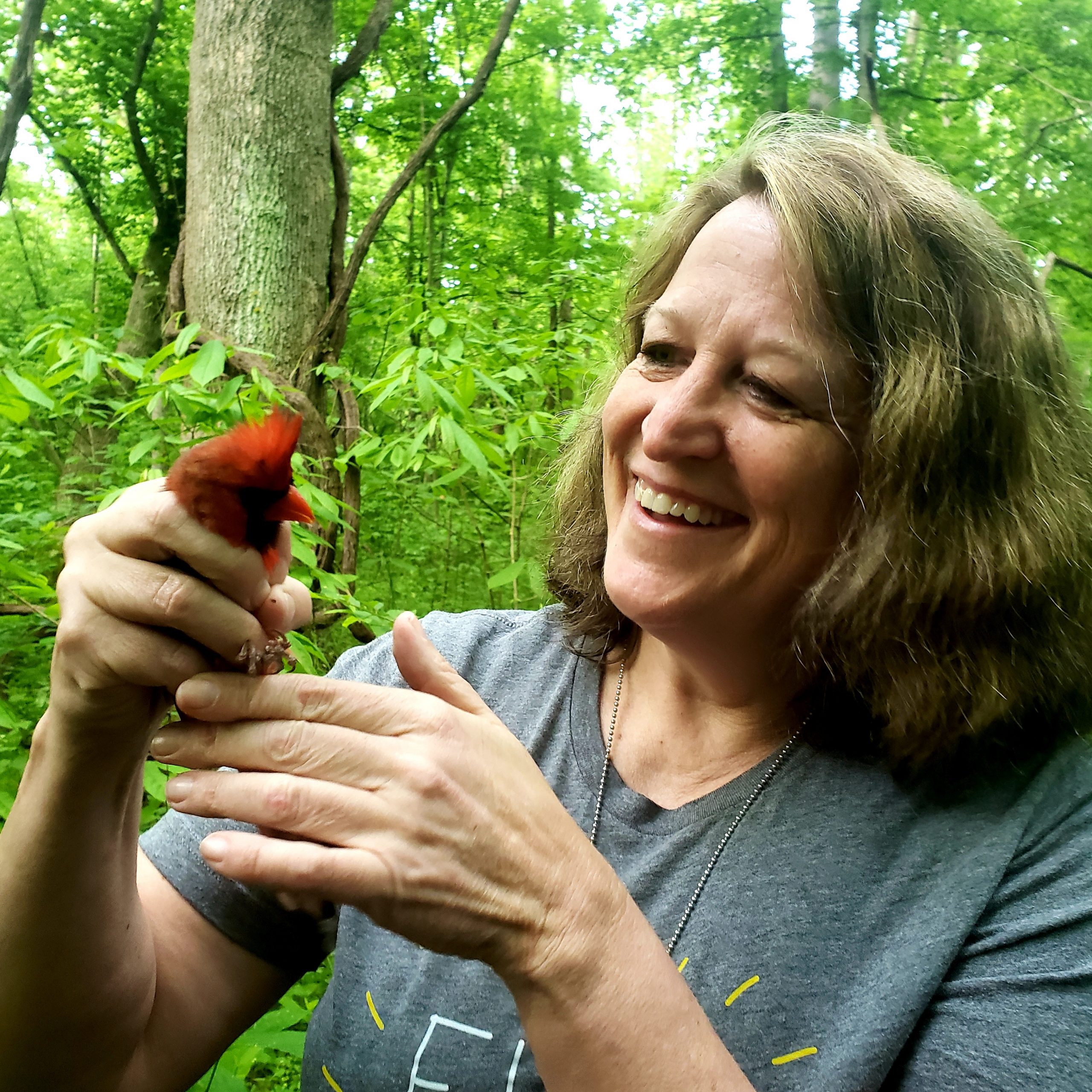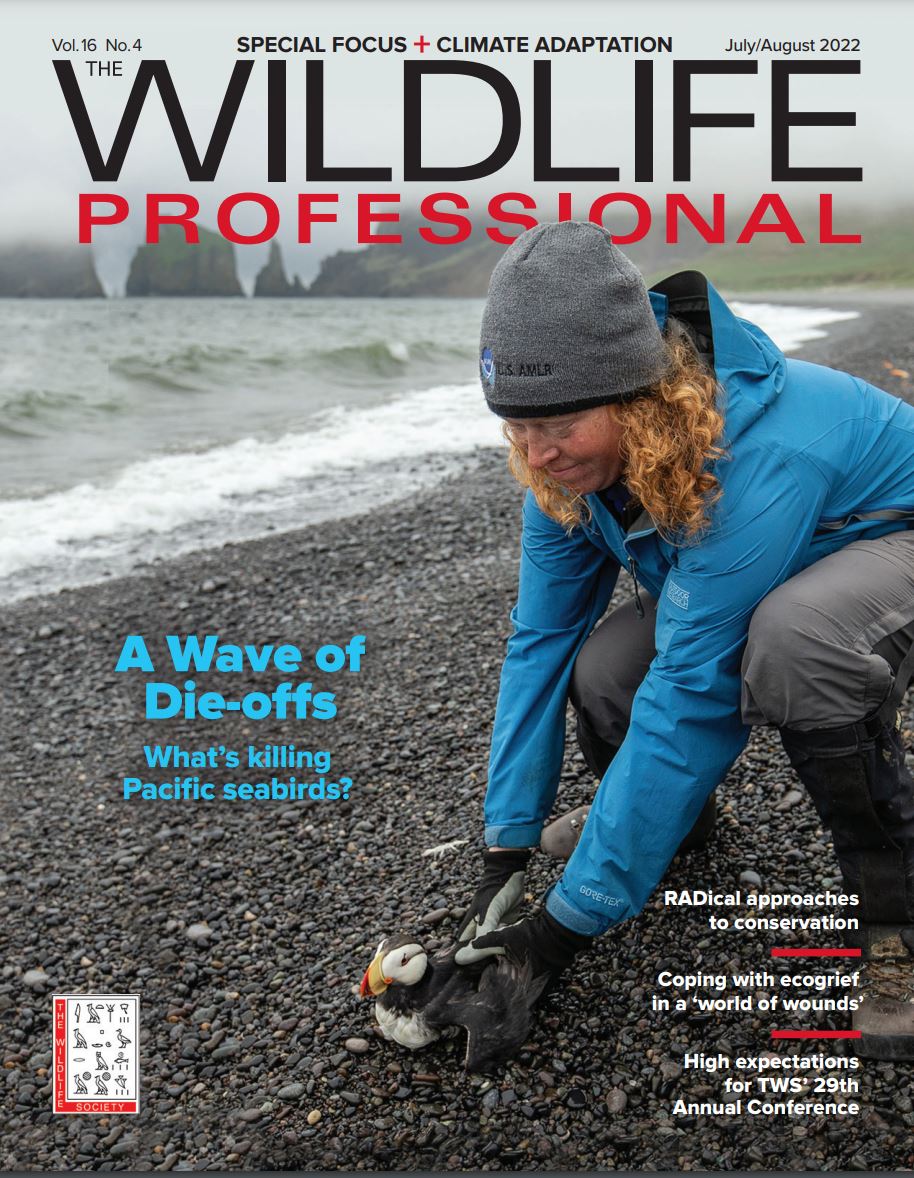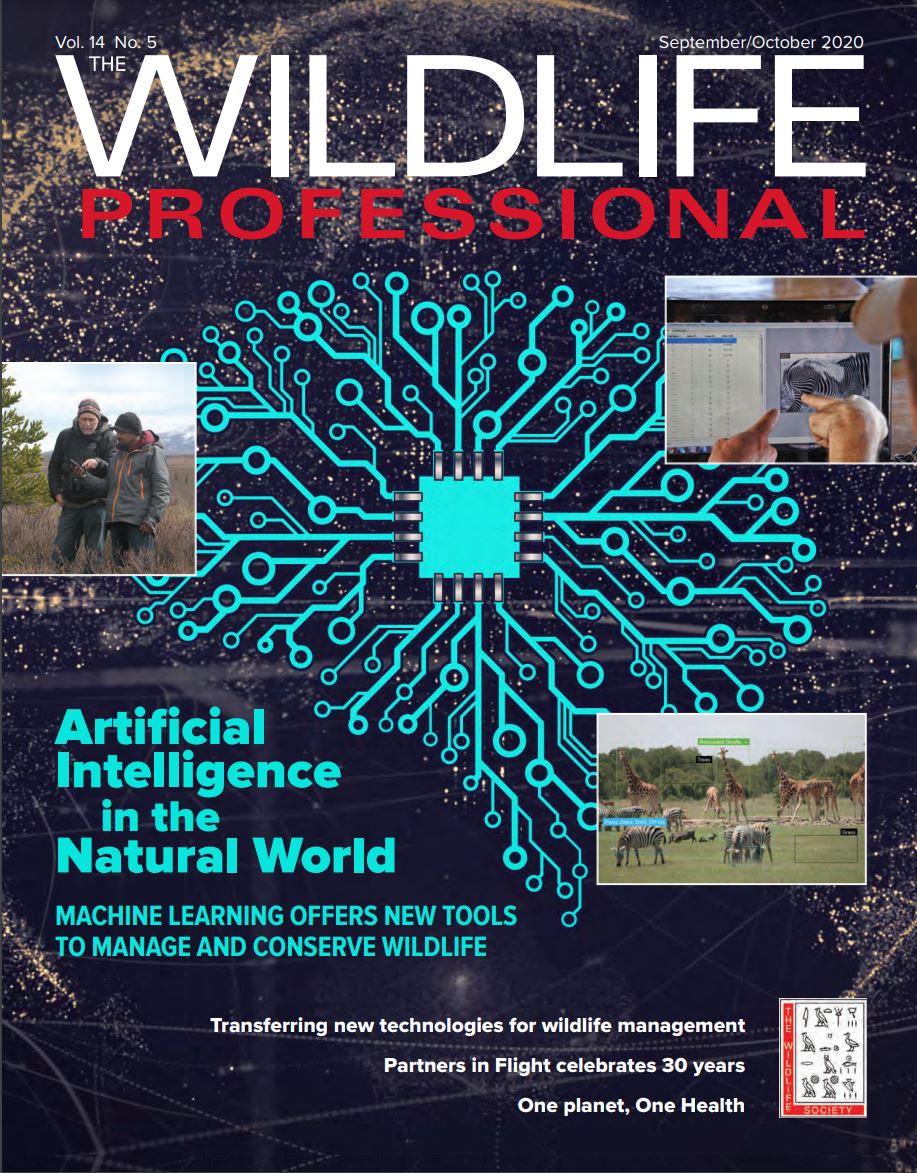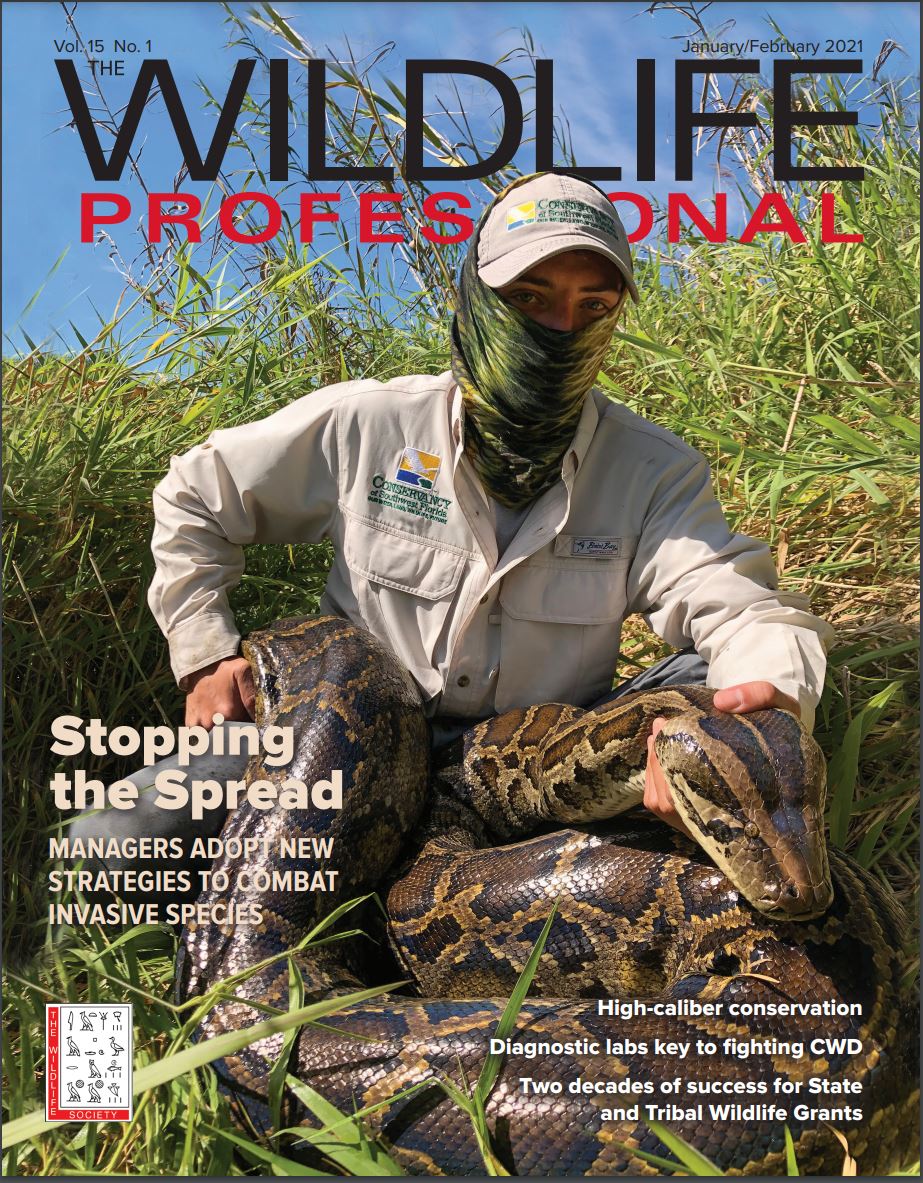
I am so proud of one of my professional organizations, The Wildlife Society (TWS), for drawing awareness to the issue of wellness these past few years. My first exposure to the topic was at the Minnesota Chapter of TWS’s annual meeting in February 2019. In a session on wellness, the chapter leaders showed up vulnerably by sharing their own struggles. Those stories opened the floodgates for participants to talk about wellness, not only for themselves but also how they are affected by workplace policies that don’t leave them well. Since then, I’ve been working with my chapter, the national organization, and some of the members to bring a heightened awareness of wellness to the field. This blog is about the pride I have in my membership organization and what’s resulted since that first meeting.
The Connectors
I must give a huge shoutout to Gary Potts, former President of TWS, for his passion and tenacity for this topic. Potts was present at the session in Minnesota, and I had the opportunity to speak with him about the work I do. We talked about the need to remove any stigma around wellness and mental health in the profession. He encouraged my idea to write some articles for The Wildlife Professional magazine, which is a membership resource that includes helpful articles for the field (as opposed to the research magazine The Journal of Wildlife Management).
I have a connection to The Wildlife Professional magazine editor, Keith Norris, through our shared experience with the National Conservation Leadership Institute. When I reached out to Norris with a proposal to insert wellness articles into the magazine, he wanted to know more. He agreed to consider a draft about wellness, and if it was well-received, consider some additional articles. The first article appeared in the September/October 2020 issue of The Wildlife Professional.
Self-care
In this article, entitled A Wellness Path for Wildlifers, I introduced the wellness model I use in my workshops. Wellness starts with awareness, moves to encouragement and eventually to living life fully. Illness starts with discouragement and can move to self-defeating behaviors and eventually death if we aren’t mindful of our behaviors and thoughts.
The focus of the article was to open the conversation about wellness, what it is and why it’s important to discuss in our profession. In the article, I write “When we realize our common humanity and normalize the understanding that everyone struggles, walls magically begin to fall and windows of new and rich conversation open.” We need creativity and innovation in this field, and we can’t have that if the people within it are walking around at half capacity.
Burnout
The next article, entitled Tuning in to Burnout, appeared in the January/February 2021 issue of The Wildlife Professional. This article moved from the basic concepts of wellness, along with a few tools, to how burnout and wellness show up in the workplace. On top of general burnout, I wrote about the effects of COVID-19. For lack of a better term, I started calling it Covid Overwhelm. In the article, I provide some suggestions to cope with burnout.
● Check your attitude (ultimately you are responsible for your choices)
● Focus on areas of control (we can’t control everything)
● Just say no (sometimes a simple “No” is enough)
● Rest (self-explanatory)
● Find the quiet (practice mindfulness and meditation)
● Celebrate accomplishments (we need positives to override some of the negatives)
● Be grateful (practicing gratitude shifts our brain)
● Nature is key (and yes, get outside)
 Ecogrief
Ecogrief
The most recent article, which appeared in the July/August 2022 issue of The Wildlife Professional, is entitled Working in a World of Wounds. This article focuses on the psychological effects of working with issues like climate change, endangered species, invasive species, wildlife trafficking, and others that often feel hopeless. I ask readers to acknowledge “ecogrief,” a term that’s become a bit popularized. I go further to suggest we must have open dialogue and encourage people to express this pain and grief without judgment. I provided some tools and resources for resilience. We need our entire community to embrace these feelings as normal.
I received some encouraging feedback from the article before my own copy arrived in the mail. One person expressed gratitude for the perfect way to open this conversation in the workplace. A second person suggested that I go even farther to challenge supervisors who may be further negatively contributing to these issues by avoiding the conversations and/or expecting staff to “toughen up.” While I agreed, I explained that I encourage supervisors lacking confidence and experience in the topic to defer to someone who is open and ready.
Increased Need
That initial article, and more conversations with Potts, led to my Self-care for Conservationists workshop at the Midwest Fish and Wildlife Conference in February 2021 with over 40 registered. Since that first workshop, I’ve led additional self-care workshops for state fish and wildlife agencies, universities, and several other national organizations.
Due to interest in the Self-care workshop in 2021, I held a Team Wellness workshop at the Midwest Fish and Wildlife Conference in February 2022. The workshop participants dove deep into the topic. They all expressed deep gratitude to me for sharing this work with them.
My partners Jimmy Fox and Tom Kalous have been offering workshops on Acknowledging Ecogrief and Developing Resilience. Because of the sensitive nature of the topic, we first tested it with an amazing group of individuals from the Florida Fish and Wildlife Conservation Commission. We’ve offered several sessions since 2019 and will be working with the US Fish and Wildlife Service on three sessions this fall.
Upcoming Opportunity
Underlying much of the wellness work is trauma. Even if individuals feel like they haven’t experienced a traumatic event in their lives, we all experienced the effects of COVID-19. The event was traumatic for most of us in that it challenged our identities, life experiences, and approaches to work.
To that end, and with the encouragement and support of many TWS members, I worked with two highly skilled and trauma-informed counselors (Bre Cahoy and Christine Park) to submit a workshop entitled Nurturing Trauma-informed Conservation Communities for the annual meeting. We were accepted and have received formal support from the Inclusion, Diversity, Equity and Awareness Working Group and the Early Career Professionals Working Group. I also obtained some financial support from my agent, Chad Henke at Thrivent Financial. The North Central Section has provided verbal support (waiting for voting) as has the TWS Council President.
The workshop will be held on Wednesday, November 9th from 8 am-12 pm. The location is the Davenport Grand Meeting Room of the Spokane Convention Center in Spokane, Washington. Registration is open and costs $50.
We will be talking about what trauma is and the many layers of trauma that exist in our lives. We will provide resources for movement toward healing workplaces. We will also practice some healing exercises right in the session. Feel free to contact me with questions about the TWS workshop, the workshop in general, or any other comments or suggestions.
Shout Outs
Big shout out to Gary Potts, who continues to be a huge supporter of wellness in the wildlife profession. To the North Central Section for their interest and support. Thanks to the TWS working groups who’ve financially supported the effort. Keith Norris has been a wonderful editor and he and his team make me sound smart.
A special shout out to Mark Hove and Kyle Daly from the Minnesota Chapter of TWS who inspired these efforts. And, thanks to our chapter’s Diversity and Inclusion committee which has supported me in all the work I do around wellness and inclusion as well. No one does this work alone. They continue to motivate and inspire me to keep up my work toward healing our wildlife (fish, habitat, etc.) workplaces.
Contact me for information about the workshops mentioned or for copies of any of the articles from The Wildlife Professional.
Upper photo: A cardinal was captured for research as a part of the Doris Duke Conservation Scholars Program Collaborative where I was an honored speaker.
Written by Michelle Doerr
©anavahconsultingllc 2023


